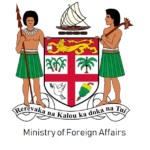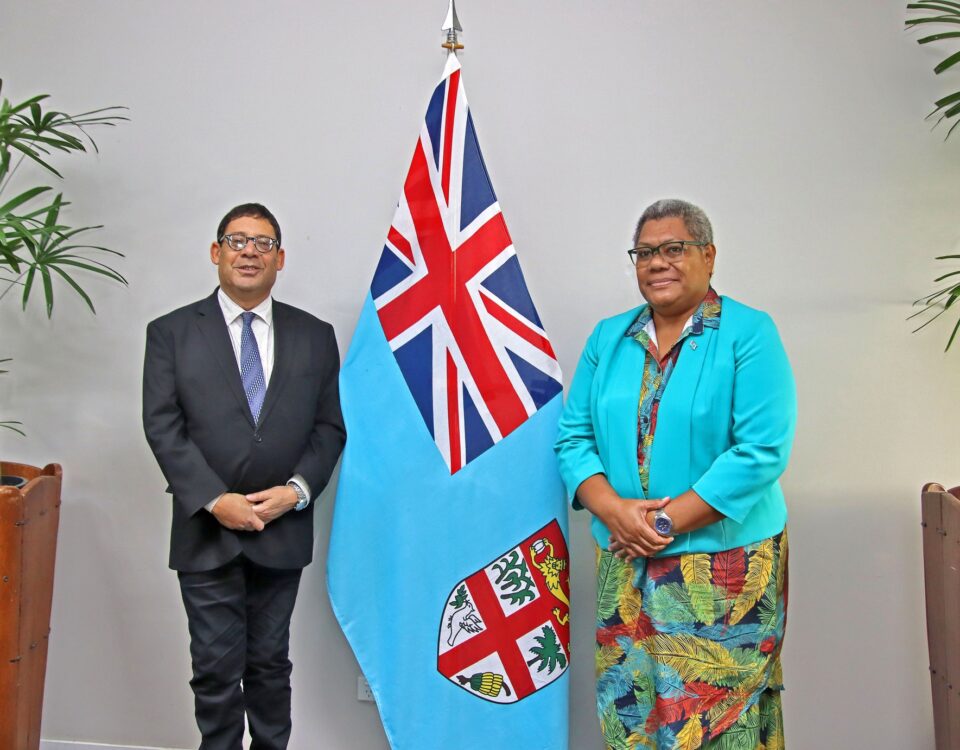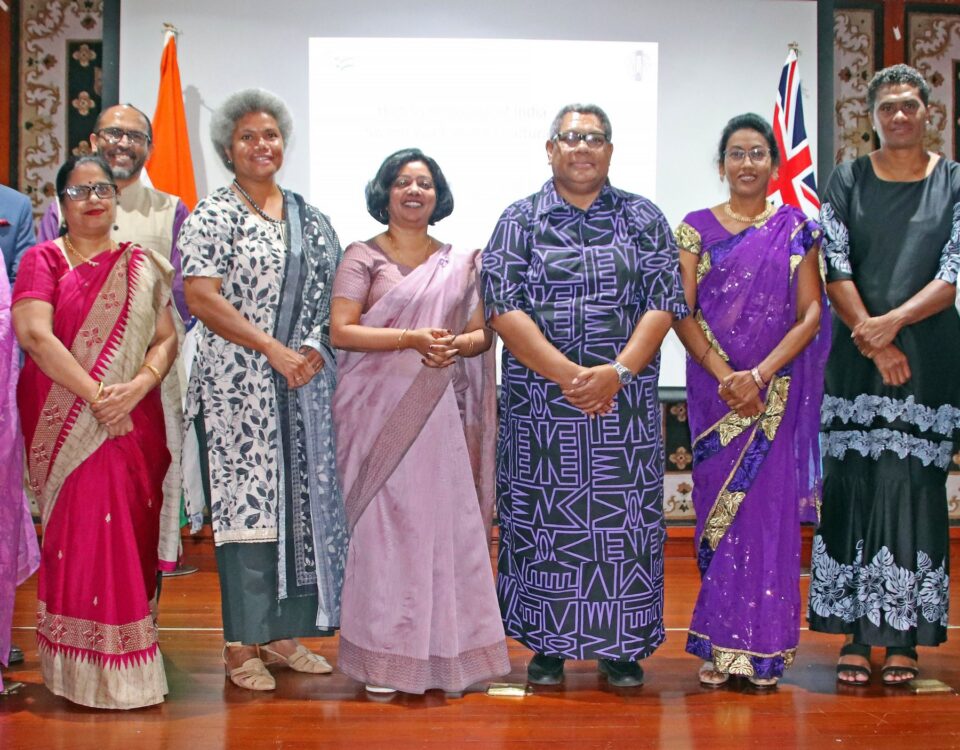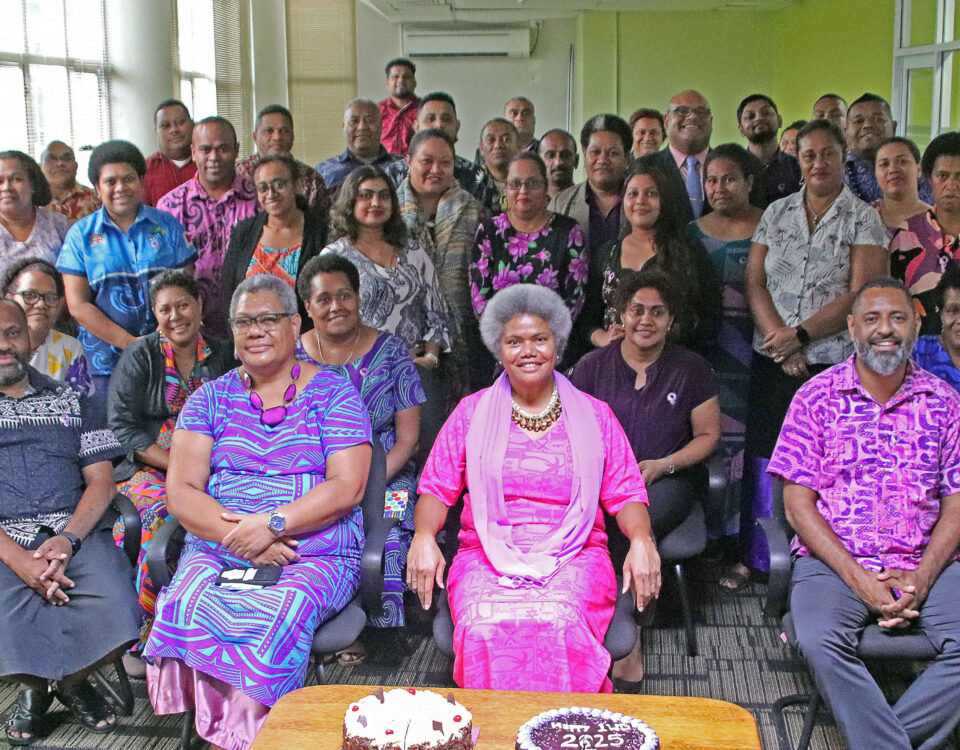
Prime Minister Voreqe Bainimarama’s Reply to COVID-19 Budget Response
27/03/2020
Statement by the Minister for Health and Medical Services Hon. Dr Ifereimi Waqainabete
01/04/2020Published On: 29/03/2020
Bula Vinaka.
As of today, the 29th of March, there are no new cases of COVID-19 in Fiji. After testing over 330 suspected cases –– many of whom were in direct contact with our first five patients –– all other results have returned negative. Meanwhile, the five Fijians living with COVID-19 are all in stable condition.
From the moment the threat of a global pandemic was clear, our medical teams have been preparing to identify and isolate the virus if it arrived in Fiji. We acted decisively when our first case was confirmed and –– due to our diligence –– we know where every one of our first five cases originated. We’ve also been successful in identifying and isolating or quarantining their closest contacts –– we have now accounted for the over 300 passengers who flew on the same flights as the first patient –– all of those passengers who are in Fiji have been directed to self-quarantine for 14 days.
I appreciate that our lockdown measures and travel restrictions haven’t been easy for everyone –– but it is clear these were the right measures taken at the right time to lockdown this virus.
Through the intensive work of our contact tracing teams, doctors, nurses, health inspectors, police officers, the Republic of Fiji Military Forces personnel, and the support staff from across government, we’ve done extremely well surveilling for, testing and containing new cases.
But even if we throw every resource in government at our response effort, without widespread public compliance, we will not win the war on coronavirus –– and we are at war, make no mistake.
I know every Fijian wants to stop this virus dead in its tracks. I know we all want to get back to the business of living normally as soon as it is safe to do so –– it’s high time every Fijian starts supporting and adhering to the government’s measures to keep them safe and beat this virus once and for all.
We are doing everything that needs to be done to urgently contain this virus. Everyone who gets off our flights is being quarantined in government-funded, designated centres, and monitored. We have been relentlessly tracking down contacts, monitoring self-quarantines, and testing hundreds of suspected cases. And every day, we are actively ramping up these efforts even more –– preparing and expanding our facilities, setting up new fever clinics, scoping out new isolation centres to prepare for the worst-case scenario. We cannot, and will not, rest so long as COVID-19 poses a risk to the Fijian people.
So, while we may not have a new case yet –– that fact shouldn’t lull anyone into a false sense of security. In fact, every person in Fiji should act as if anyone, anywhere could be a carrier of the virus. Act as if you –– or someone you love –– are already Fiji’s next case of COVID-19.
I’m not trying to scare anyone. But I do want every person watching or listening to recognise the role they have to play. Because all it takes is one careless, symptomatic person to undo all of our diligence and discipline in defeating this virus for good.
This is a crisis, lives are on the line, the economy is on the line, and we all must treat this situation with total seriousness.
No matter where you are in Fiji –– treat this crisis seriously. If you’re at the market, at your place of work, or at a government office –– treat this crisis seriously; keep a safe distance of two metres between you and others as much as humanly possible, wash your hands with soap and water, and unless you are getting food, going to work, or doing something else vital to your life or for your livelihood, stay at home. Help keep the elderly at home. Keep your children at home. And think critically about how you go about your day-to-day life. When you touch something that somebody else has touched, you could spread the disease, whether that’s mixing your kava, sharing a cigarette, coughing without covering your mouth, or even spitting on the ground –– all of these activities can put people at risk.
If you’ve been directed into compulsory self-quarantine, or know someone who has been ordered into quarantine –– treat this crisis seriously. Stay where you’ve been directed to stay so we can contain the virus if it rears its ugly head.
Because if you break government-imposed quarantine –– or any of our other rules –– you will end up paying the price. When we passed our COVID-19 Response Budget, we also gave teeth to our enforcement under the Public Health Act. It used to be a $40 fine if anyone violated our COVID-19 health protection measures; now, it’s five years in prison and up to a 10,000-dollar fine, or both. Law-breakers be warned –– we will have zero tolerance for those recklessly risking the lives of themselves or others.
But I know there are also thousands of Fijians out there who are actually doing the right thing. I’m speaking of the supermarket managers who have properly spaced out their check-out lines to enforce physical distancing; the restaurants who have cut their seating and who are switching over to take-aways and deliveries; the villages that have locked down and enforced strict physical distancing; the parents keeping close watch of their children; and all those who have deferred and downsized their weddings, religious services, kava sessions, parties and other plans to respect our ban on gatherings of 20 or more. Keep up the good work, and demand your fellow citizens follow your lead.
Over and over, Fijians have heard me talk about the essential steps needed to contain the spread of the virus. These have all been matters of personal responsibility –– because while the government can make these recommendations, or even hand out punishments, ultimately, individual action, and individual responsibility, will be what wins this war –– because there’s no other option; this is a war we cannot afford to lose.
Today, I want to stress another way in which you can demonstrate responsibility, and play your part in combating coronavirus: break the stigma around those who are seeking care. I understand that these are already scary times, and it may be intimidating to visit our health centres –– particularly, the new fever clinics that we’ve put up throughout Fiji. But anyone who has a fever, even if you don’t have a recent travel history, should visit one of these clinics, and encourage your loved ones and neighbours to do the same.
This is particularly important as Fiji enters the flu season –– a virus that shares many of the symptoms of COVID-19. Let me be clear: There is no shame in being sick. There is no shame in having the flu, a fever, or coronavirus. By seeking treatment for your sickness, and by reporting your symptoms as soon as they develop, you are being incredibly responsible, and you are looking out for more than yourself; you’re taking care of those around you, and you’re taking care of those you love.
If you’re spreading rumours, or whispering about those who are visiting our fever clinics, you’re damaging our containment efforts. Anyone who goes to get a check-up should be praised –– they are playing a crucial role in keeping COVID-19 at bay. The only shame comes in hiding your symptoms, or by being dishonest –– that is what ultimately spreads this silent killer.
Take a moment to think about it this way: Think of everywhere you’ve been, everything you’ve been up to and how you’ve been feeling over the past 14 days. Have you been acting like a responsible Fijian? Have you been physically distancing yourself from others? Have you been avoiding travel unless absolutely necessary? If you’ve been feeling sick, or know someone who is sick, have you told anyone? Or have you acted in reckless ways that have put your fellow Fijians at risk?
Winning this war begins with winning the small battles, every day, in all of our lives. So, let’s use positive social pressure to encourage our friends and family to visit these fever clinics if they’re having a fever, wherever they live in Fiji. Visiting these clinics is a win for everyone involved; it’s a win for you in detecting your sickness early. It’s a win for your family and your community, as they will be protected from the spread. It’s a win for our COVID-19 containment efforts, because even in the worst-case scenario, you will be treated and isolated early, saving lives in the process. And it’s a win for your country –– because we are all in this fight together.
In the days ahead, I want to see that same spirit of positive social pressure in the Lautoka confined area, as this week will prove absolutely critical in determining whether –– come Friday morning –– we either lift restrictions or have to extend them. If even one of you fails to follow the rules and –– God forbid –– this virus spreads within Lautoka, all of you will stay on lockdown even longer.
So, to those currently in the Lautoka confined zone, you all need to ensure the rules are followed, and encourage each other –– your community, and everyone you see –– to do the same. There’s only five days left; pull up your socks, keep to the rules and get your city through this –– together.
On the subject of following the rules, I want to take some time to talk about an additional measure that I announced in Parliament last Friday –– a new, nationwide curfew that will be enforced from 10pm at night until 5am in the morning, every night, everywhere in Fiji. Starting tomorrow, the 30th of March, the police will have over 100 permanent checkpoints set up all throughout the country, to be supplemented with more, temporary checkpoints as the need arises.
Yesterday, we met with a number of stakeholders –– members of the business community, utility companies, manufacturers, and others –– to sort out the logistics of this curfew, ensuring that it will be enforced in a way that is mindful of those workers who need to travel during the curfew hours for their jobs, like shift workers, bakers and fishermen and women, security guards, utility employees and, of course, our healthcare workers. If you’re seeking medical care, or who have some other emergency to tend to you are also permitted to travel. We will not allow the curfew measures to stop work, end business service or halt the flow of goods.
But the main message for the vast majority of Fijians is this: Between the hours of 10 at night and 5 in the morning, no wandering the streets. Unless you have an emergency or are working, going to work, or coming home from work then you need to be at home during curfew. If you’re caught out without a valid reason, you’ll face serious consequences. This is about responsibility. This about making hard calls today that spare us future suffering and that get us past the worst of this virus sooner, rather than later. An abundance of caution today will bring an expedient end to this crisis, get all of our businesses open again, and get life back to normal as soon as possible.
Please also note that, in the interest of convenience and due to travel restrictions, every existing work permit in Fiji will be automatically extended for the next three months. The Permanent Secretary for Immigration will issue details soon on this proactive measure.
Minister Premila Kumar is here with me today, and she will be talking about the steps both employers and employees will need to take to ensure the curfew is implemented without a hitch, and also be explaining how our markets and their vendors will adjust to both our physical distancing measures and new curfew. The Commissioner of Police is here to answer any other questions relating to the new curfew.
But we also recognise that our strictly-enforced curfew –– in addition to our directives for all Fijians to stay at home at all hours of the day –– will have unseen social consequences. More families living in closer proximity and spending more time in confined spaces and temporary job losses can lead to tensions. Sadly, we may see a spike in domestic violence. Spouses or children may feel trapped in their home with their abusers. Fijians should know that we are acutely aware of this, and it is not an issue we are taking lightly. That’s why I’m also joined by Minister Vuniwaqa, who can speak more about the support the Ministry of Women is able to provide to those looking for help in these already-difficult times.
My fellow Fijians,
As I mentioned in Parliament last week, we had two evacuation flights come in from Australia and New Zealand over the weekend to get Fijians back home and return foreign nationals to their countries. While Nadi Airport is closed to regular passenger travel, these flights were critical to repatriate people and bring in some essential supplies –– including one million dollars’ worth of personal protective equipment like masks, gowns and goggles, for our frontline health workers. Rest assured, every passenger who has landed in Fiji has immediately entered compulsory quarantine in government-funded designated areas, under close supervision by medical teams and personnel of the Republic of Fiji Military Forces. They will not interact with anyone from the public for at least 14 days. Additionally, from 6pm tomorrow, inter-island flights will cease, except for freight purposes. This comes on top of our ban on inter-island passenger shipping travel, which takes effect from today.
Even though we haven’t seen a huge rise in cases, we’re still preparing as if a disaster scenario could be upon us any day. In addition to our isolation wards in each division, we have identified and prepared well-equipped surge locations in case the capacity of our hospitals is tested. Our outreach teams are across the country raising community awareness of how to combat coronavirus. Those Fijians under compulsory self-quarantine are receiving check-in calls and in-person visits by members of our disciplined forces and health workers.
But even in our best-case scenario, even if we eradicate this virus in Fiji, and even if we’re able to resume much of normal life, many Fijian businesses and families are in for a very difficult few months –– at least. Australia, New Zealand and the United States are all battling extremely serious COVID-19 outbreaks, and flows of tourism and trade will either be cut off or slowed for the foreseeable future. In fact, New Zealand, I’m sad to report, has just recorded their first death from the virus.
Last Thursday, we announced our COVID-19 Response Budget which properly equips our hospitals and rolls out a one-billion-dollar stimulus package to extend financial lifelines to some of the most severely affected Fijians to keep economic activity alive, even in these strenuous times. If the situation continues to go downhill, new measures of support will be provided. So, to the countless Fijians anxious about what the future holds –– know that you are not alone. Your government will be there to support you through however many weeks or months it takes for the world to beat this virus. We feel your suffering, and we are working every hour of the day to return our lives, our businesses, and our country to normal as quickly as humanly possible.
In the meantime, we will continue to keep you updated on what we’re doing, what we’ve done and –– most importantly –– what we’re prepared to do if deemed medically necessary.
This Tuesday we’ll be rolling out a new COVID-19 Call Centre to handle all concerns relating to COVID-19 and our response measures, with one toll-free number anyone can call. Until Tuesday, if you, or someone you’ve had contact with, has recently travelled overseas and you are experiencing the symptoms of COVID-19 –– even if those symptoms are as mild as a sore throat or cough –– you can call the following numbers:
In the Central Division call 2219905;
In the Eastern Division call 2219906;
In the Western Division call 2219907; and
In the Northern Division call 2219908.
On this Sunday, I’d like to extend one final thank you to all of the faith leaders from all religions across the country who have led by example in keeping their followers away from gatherings of 20 or more people, and who have been praying for Fiji in the wake of this global crisis. Because even in a time when religious services cannot take place due to this virus, remember, we Fijian always draw our greatest strength from faith –– never from fear. While large gatherings pose too great a risk, God will always be with us, wherever we are and wherever we pray and however we pray.
My fellow Fijians –– don’t let up now. Double-down on your efforts. Wash your hands twice as often this week. Stay at home as much as possible, and adhere to our new curfew. Let’s lock down this virus. Let’s win this war –– together.
I’ll now pass things over to Doctor Aalisha.
Vinaka vakalevu. Thank you. And God Bless Fiji.





